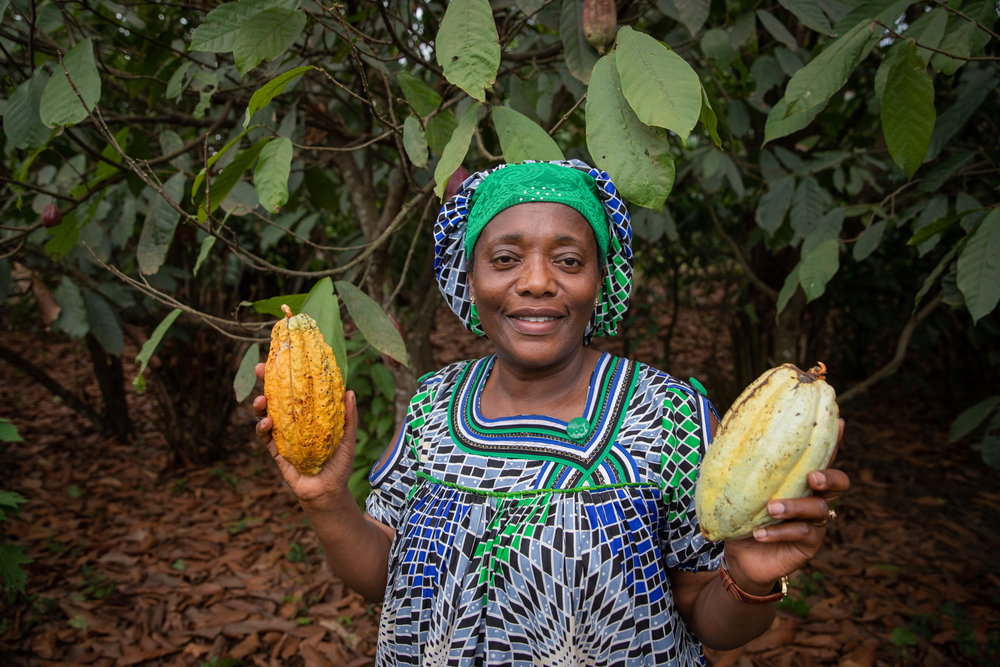The project aims to support cocoa producing countries in Latin America and the Caribbean (LAC) meet the 2019 European Regulation, and others to follow, that set maximum levels for cadmium in cocoa and chocolate products.

San Jose, 8 November 2022 (IICA). The Inter-American Institute for Cooperation on Agriculture (IICA) and the International Cocoa Organisation (ICCO) launched the project Improving capacity building and knowledge sharing to support the management of cadmium levels in cocoa in Latin America and the Caribbean for export to the European Region.
The project aims to support cocoa producing countries in Latin America and the Caribbean (LAC) meet the 2019 European Regulation, and others to follow, that set maximum levels for cadmium in cocoa and chocolate products.
The initiative is being implemented by the IICA in collaboration with the International Cocoa Organisation (ICCO), alongside implementing entities in the beneficiary countries: Corporacion Colombiana de Investigacion Agropecuaria (AGROSAVIA) in Colombia, Ministerio de Desarrollo Agrario y Riego (MIDAGRI) in Peru, Cocoa Research Centre in Trinidad and Tobago, and the Government of Ecuador.
The geological formation of soils in LAC has resulted in naturally occurring deposits of cadmium and other heavy metals across the region. This is potentially problematic as heavy metals in foods can have adverse effects on human health.
LAC region supplies nearly one fifth of the world’s cocoa and over 80% of the world’s fine and flavor and organic cocoa. Cocoa is produced by over 400,000 tree crop farming families across 25 countries in LAC and is a major source of rural employment in producing countries. The cadmium regulation could jeopardize the region’s access to lucrative cocoa and chocolate markets and thus threaten livelihoods of producers and other stakeholders in the cocoa value chain in the region. Presently, rejections of cocoa bean shipments for cadmium levels from Latin America and the Caribbean are the highest in the world.
The project, which is funded by the Standards and Trade Development Facility (STDF) and the European Development Fund (EDF), is being implemented in Colombia, Ecuador, Peru and Trinidad and Tobago, and will have application in other cocoa producing countries in the region. The project will implement actions that form a pathway for cocoa producing countries to minimize cadmium accumulation in the cocoa value chain.
With reference to the four beneficiary countries, Executive Director of the International Cocoa Organisation (ICCO), Michele Arrion, commented during the opening ceremony, that they “are at ground zero of the cadmium issues, and also at the heart of fine flavor cocoa production. They must be supported to ensure that the best cocoa in the world is not negatively impacted by such a regulation in terms of trade and market access”.
The project, as explained by Elizabeth Johnson, IICA Representative in Jamaica who is coordinating the project, “is really to help us meet the EU regulations for cadmium levels in chocolate and cocoa products”.
Additionally, she said, “we want to derive some benchmark protocols for testing cadmium and for mitigating cadmium levels that we can adopt across the region as solutions to help us meet those regulations and maintain market access”.
The launching was held virtually to facilitate participation of cocoa value chain stakeholders from the beneficiary countries and other cocoa producing countries in the region, and partner organisations based in the Caribbean, Europe and Africa.
Approximately 140 persons attended the launch, representing farmers, cocoa processors, chocolate brands, universities, government ministries, research entities and international development organizations based in 17 countries.
During the launch, project sponsors and implementing partners in the participating countries discussed the project objectives and planned actions as well as shared information from a situation analysis in the project implementing countries with respect to the four core activities of the project, which are:
- Facilitate dialogue and build consensus among lead researchers in LAC and value chain stakeholders, to develop appropriate methods and protocols for testing of cadmium in cocoa and cocoa products, and include these consensus protocols as the benchmark in National Cocoa Sector plans to mitigate against cadmium in cocoa value chain in LAC.
- Develop curriculum for and train technical staff from project countries in agreed standardized protocols for implementation,
- Identify main sources of Cd contamination in defined cocoa production hotspots and make recommendations on appropriate mitigation strategies, and
- Train Master trainers to disseminate key messages generated in the project as the catalyst for expanding knowledge and interventions to mitigate cadmium in Cocoa in the region.
The project will also further contribute to awareness raising on the issues surrounding cadmium in cocoa by hosting a series of webinars called “Cadmium Talks”. The virtual webinars with simultaneous English and Spanish interpretation will be held every 2 months starting 23 November 2022.
Each webinar will feature expert presentations and discussions to share the most current information in an attempt to demystify the complexity that is cadmium in cocoa. A project logo was also unveiled that symbolizes the goal of the project to support the production of “Cadmium Free Cocoa” in Latin America and the Caribbean.
In closing the event, Deputy Director General of IICA, Lloyd Day, underscored the importance of the project. “The world has a high demand for chocolate. It is going to continue to have a high demand for chocolate. So the cocoa we produce needs to be safe”, he remarked.
He added: “the work that you all do in order to ensure that chocolate is safe and farm income is improved, through practices that take advantage of all the new technologies and innovations that are coming out of research institutions like we heard from today is vitally important”.
More information:
Institutional Communication Division.
comunicacion.institucional@iica.int











